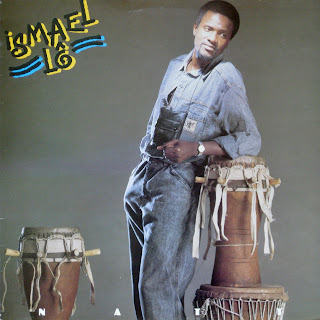Well, friends, here we are. It turns out life does not settle down, but gets crazier by the day. Yet music is central in my life, and I continue to digitize records for my radio show. When I can grab some time, I'll try to post them here.
I chose to reenter with this album from Ismaël Lô because a reader, years ago, pleaded for it (and Xiif, which shall follow soon). This is the third album Lô recorded after leaving Super Diamono, and it is a lush bridge between mbalax and the more global singer-songwriter style he evolved.
While Natt was rereleased as a compilation CD in 2004, easily available for almost nothing at Discogs, I think the sound of this pristine LP is better. New link.
Happy Holidays! Enjoy!
















